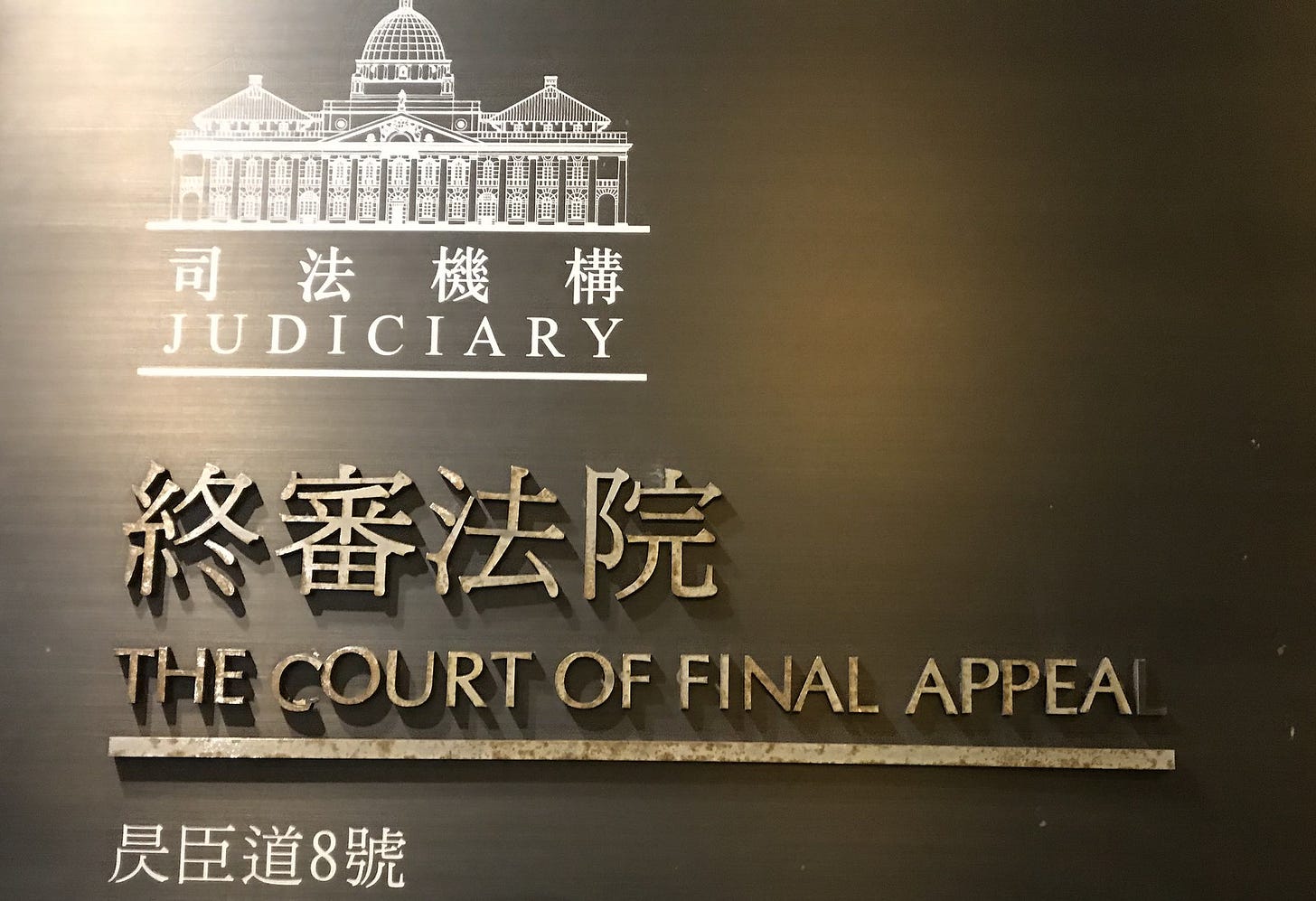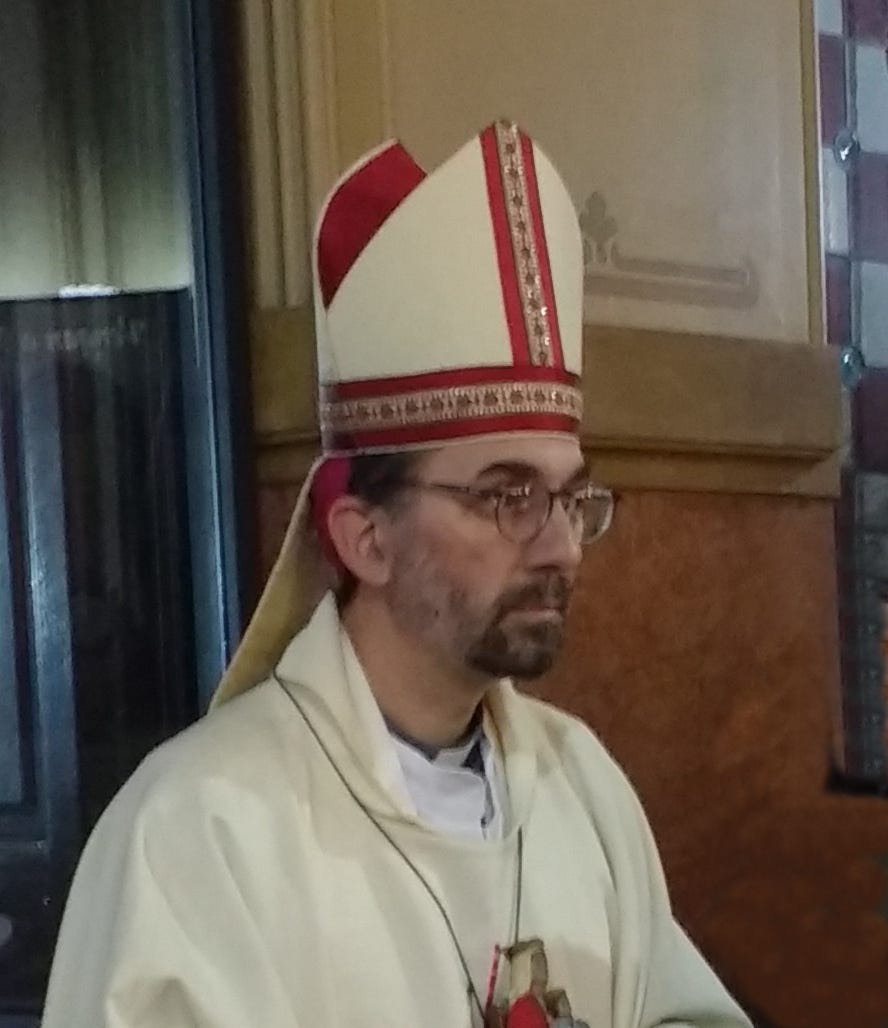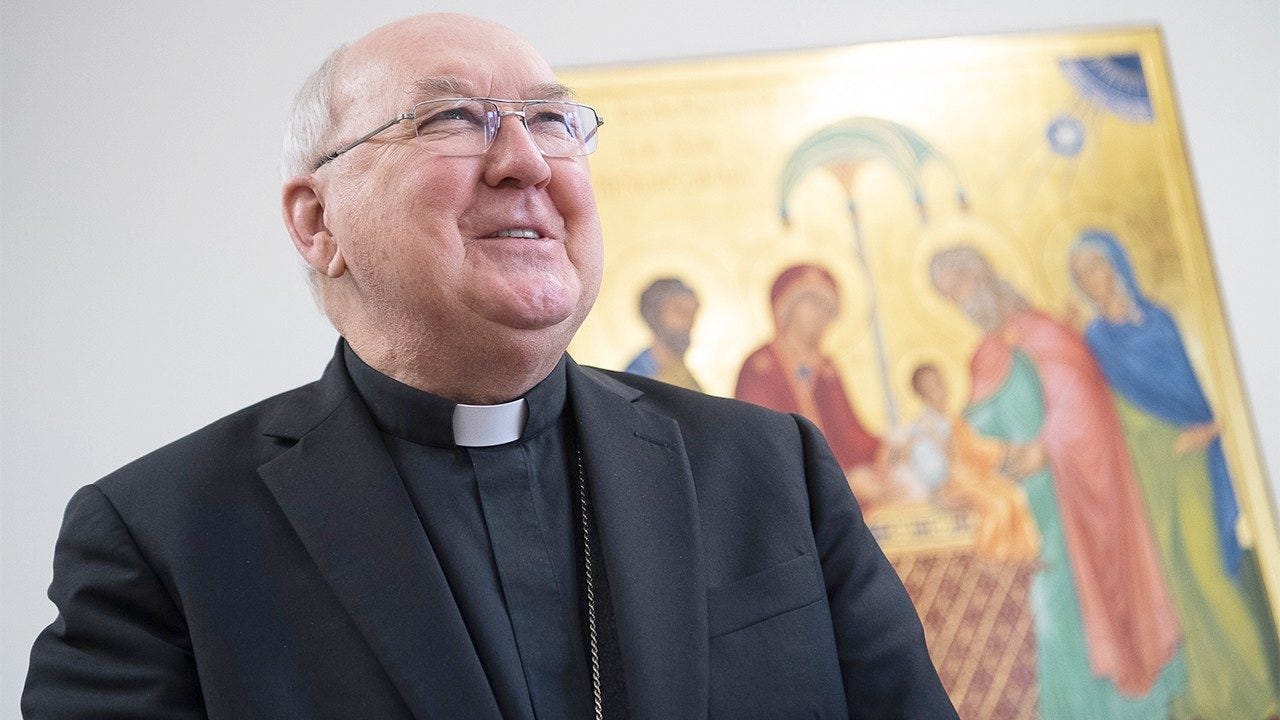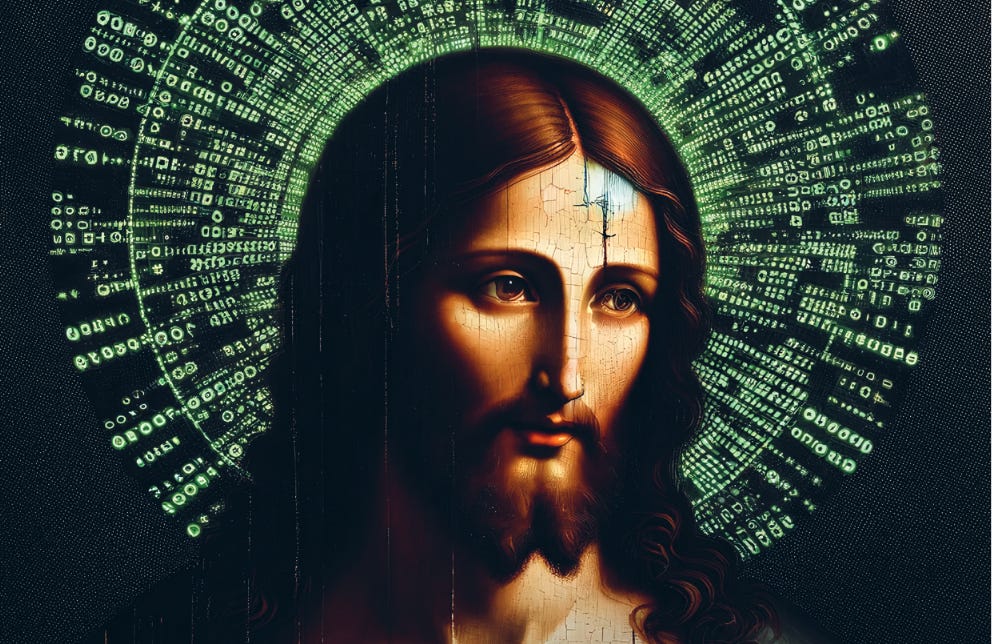A crowd of hundreds, including Cardinal Joseph Zen, gathered outside West Kowloon Magistrates’ Court in Hong Kong Monday morning. They were demonstrating ahead of a hearing for 47 pro-democracy activists who have been charged under the new National Security Law brought into force last year.
The 47 activists were formally charged on Sunday and spent the night in custody. Their arrest is the latest in an ongoing crackdown on civil liberties in the territory.
The crowds began to gather Sunday night after the arrest and charging of the activists, who were arrested for their participation in an unofficial primary ballot last year to select pro-democracy candidates to stand in forthcoming elections for the Hong Kong legislature.
Among those standing in line in the hopes of being admitted to the public gallery were diplomatic staff from the local consulates of the United Kingdom, United States, Germany, and Canada, as well as the European Union’s Hong Kong office.
Zen, visible among the crowd, is the emeritus bishop of the Diocese of Hong Kong.
The 47 pro-democracy activists are charged with plotting to “subvert the state power by organising, planning, committing or participating by force or threat of force or other unlawful means,” by taking part in an unauthorized primary poll with a view to winning a majority in the territory’s legislative assembly.
Local law enforcement ordered the crowd outside the court to disperse Monday afternoon, according to local media, raising a purple flag to signal that the gathering was deemed unlawful and could be in breach of the National Security Law, which came into force in July last year. The law criminalizes previously protected civil liberties, including freedom of speech and freedom of the press, under the headings of “sedition” and “foreign collusion.”
The situation is likely to further delay the appointment of a permanent bishop for the Diocese of Hong Kong. The Vatican has twice had to abandon plans to announce a new bishop for the diocese because of political concerns.
Senior sources in Hong Kong, the Vatican, and mainland China have all previously told The Pillar that the selection of the next bishop was on hold because of the political situation in the territory.
Several foriegn governments have condemned the arrests.
On Sunday, British Foriegn Secretary Dominic Raab called the arrests “deeply disturbing” and said they illustrated “in the starkest terms the [National Security Law] being used to eliminate political dissent rather than restore order - contrary to what the Chinese Government promised.”
The U.K. has previously announced a plan to allow Hong Kong holders of British National Overseas passports to apply for expedited U.K. visas.
Secretary of State Anthony Blinken said that the United States “condemn[s] the detention of and charges filed against pan-democratic candidates in Hong Kong’s elections and call[s] for their immediate release.”
“Political participation and freedom of expression should not be crimes. The U.S. stands with the people of Hong Kong,” Blinken said early Monday morning.
Also on Monday, Hong Kong media reported on a newly published speech, given last month by Xia Baolong, the Beijing government’s chief minister for Hong Kong, in which he said that Jimmy Lai, the imprisoned Catholic pro-democracy advocate and founder of the Hong Kong newspaper Apple Daily, should be “severely punished under the law.”
Lai was arrested last August, weeks after the National Security Law came into force. After being initially released on bail, he was re-arrested on charges that his media company had violated the terms of its commercial lease on its headquarters. He was denied bail and has been in jail ever since.
In an interview in December, Cardinal Zen called Lai’s arrest “obviously a case of political intimidation,” and warned that “there is a clear policy direction: suppress the freedom of expression.”
Lai is one of several Catholics to have been arrested under the terms of the National Security Law, and many of the leaders of the pro-democracy movement are either Catholic or attended Catholic schools.
Last month, Martin Lee Chu-ming, a Hong Kong Catholic lawyer, human rights activist and pro-democracy politician, was nominated for the Nobel Peace prize. Lee founded Hong Kong’s first pro-democracy political party, spent decades serving in the legislative assembly, and helped to draft the Basic Law of Hong Kong which has served as the territory’s constitution and guarantee of civil rights since the handover from the UK in 1997.
The Diocese of Hong Kong has also come under pressure from Chinese authorities in recent months.
Following the imposition of the National Security Law, Catholic schools in Hong Kong were told, in a letter from the diocesan education office, that teachers must “foster the correct values on [students’] national identity” and to respect Communist national symbols, including the Chinese flag and national anthem.
The diocese has been without a bishop since the January 2019 death of Bishop Michael Yeung Ming-cheung. Since then, the diocese has been led by Cardinal John Tong Hon, who was Yeung’s predecessor, and retired in 2017.
“In a critical time like today, our faithful are hoping to hear something comforting, constructive and encouraging from the preachers during the liturgy,” Tong wrote to the priests of the diocese shortly after the National Security Law came into effect.
“Through preaching, we can help ease their mind. This could not be achieved using abusive or provoking expressions.”




